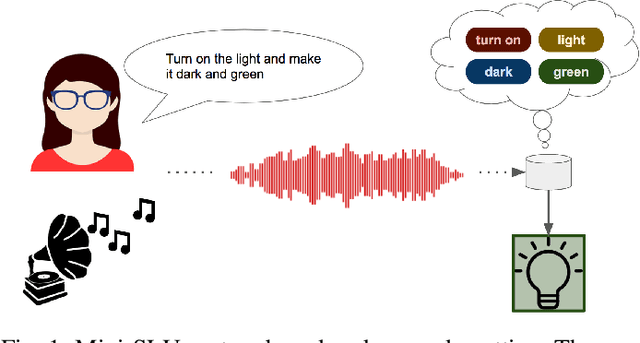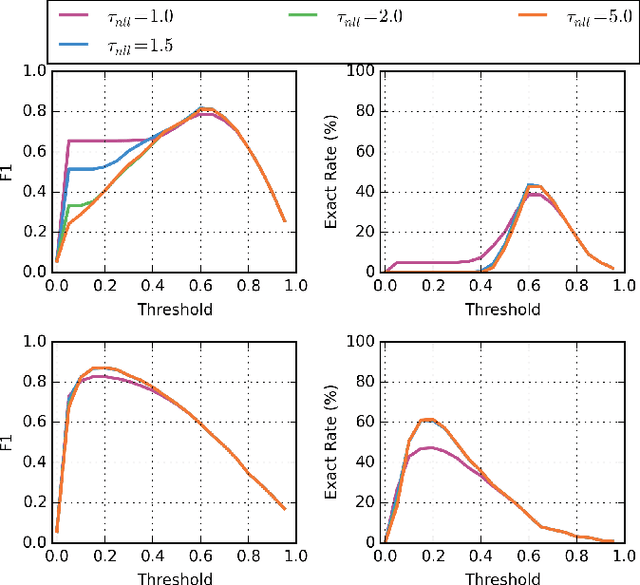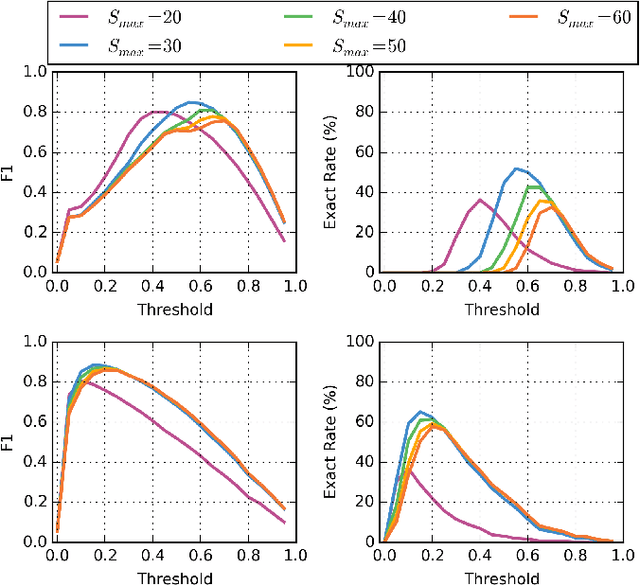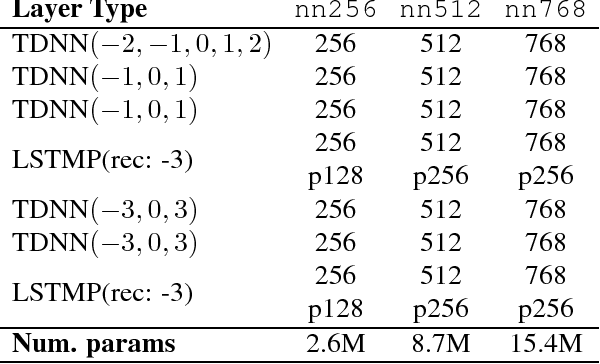Maël Primet
Small-Footprint Open-Vocabulary Keyword Spotting with Quantized LSTM Networks
Feb 25, 2020



Abstract:We explore a keyword-based spoken language understanding system, in which the intent of the user can directly be derived from the detection of a sequence of keywords in the query. In this paper, we focus on an open-vocabulary keyword spotting method, allowing the user to define their own keywords without having to retrain the whole model. We describe the different design choices leading to a fast and small-footprint system, able to run on tiny devices, for any arbitrary set of user-defined keywords, without training data specific to those keywords. The model, based on a quantized long short-term memory (LSTM) neural network, trained with connectionist temporal classification (CTC), weighs less than 500KB. Our approach takes advantage of some properties of the predictions of CTC-trained networks to calibrate the confidence scores and implement a fast detection algorithm. The proposed system outperforms a standard keyword-filler model approach.
Snips Voice Platform: an embedded Spoken Language Understanding system for private-by-design voice interfaces
Nov 05, 2018



Abstract:This paper presents the machine learning architecture of the Snips Voice Platform, a software solution to perform Spoken Language Understanding on microprocessors typical of IoT devices. The embedded inference is fast and accurate while enforcing privacy by design, as no personal user data is ever collected. Focusing on Automatic Speech Recognition and Natural Language Understanding, we detail our approach to training high-performance Machine Learning models that are small enough to run in real-time on small devices. Additionally, we describe a data generation procedure that provides sufficient, high-quality training data without compromising user privacy.
Spoken Language Understanding on the Edge
Oct 30, 2018



Abstract:We consider the problem of performing Spoken Language Understanding (SLU) on small devices typical of IoT applications. Our contributions are twofold. First, we outline the design of an embedded, private-by-design SLU system and show that it has performance on par with cloud-based commercial solutions. Second, we release the datasets used in our experiments in the interest of reproducibility and in the hope that they can prove useful to the SLU community.
 Add to Chrome
Add to Chrome Add to Firefox
Add to Firefox Add to Edge
Add to Edge